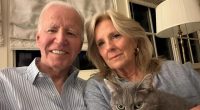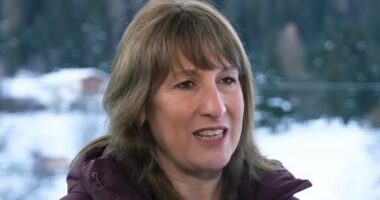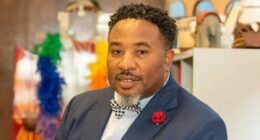Share this @internewscast.com
Whom do you trust when it matters? A surprising number of polls suggest that the answer is not experts, but those closest to us: friends and family. Last week, Gallup released a new poll on the sources Americans turn to for advice about their finances. Even in this complex area—one that is especially sensitive right now given uncertainty about the economy’s trajectory—Americans turned to sources close to home first. Forty-three percent said they asked friends and family for financial information and advice, followed closely by financial advisers and planners (41%), and financial institutions (36%). Twenty percent chose podcasts and separately, social media, books, and TV or radio programs.
Turning to friends and family members for help with finances isn’t a new phenomenon. In 1982, when asked by the Roper Organization about whom they would turn for advice about ways of saving or investing money, the top source was family and friends. A 2011 poll from National Journal/Allstate found that when asked about six sources of information for advice about financial decisions and retirement, more people said they trusted family and friends a great deal than gave that response about their employer, investment advisors, elected officials, financial experts in the media, and nonprofits.
In late February and early March, when Axios/Ipsos asked people how much trust they had in various institutions and individuals about health topics, 85% said they trusted their family doctor a great deal or fair amount followed by friends and family (73%). Sixty-two percent had high trust in the CDC, but as Ipsos pointed out, “trust [in the CDC] has fallen nearly 25 points since March 2020 when 88% of Americans trusted the CDC.” In the poll, 31% had this high level of trust in Donald Trump, and separately, Robert F. Kennedy, Jr., and 23% in Elon Musk. In a new Kaiser Family Foundation health tracking poll, far more people said they would trust their family doctor (83%) to provide reliable information about vaccines, and separately, their pediatrician (81%), and local health department (66%) than would trust federal government departments or President Trump (37%) or RFK, Jr. (41%).
To take another areas, when asked about shopping for insurance in a 2024 NORC poll for Consumer Reports, people said they would turn to the insurance company they use first, followed by friends and family.
As a final example, the Pew Research Center asked people about trust in various sources for news. Seventy-four percent said they trusted local media a lot or some, followed by friends and family (71%), national news media (58%), and social media (37%). Trust in local news media has remained stable since Pew asked about it in 2016; trust in national media had dropped significantly.
These examples point to a public opinion truism. People generally have higher trust in information sources close to home and greater skepticism about institutions such as the government in Washington and the national media that are far removed from their day-to-day preoccupations. My AEI colleague Tony Mills, writing in the spring 2025 volume of Issues in Science and Technology, noted a “new wariness that a growing share of the public exhibits toward powerful institutions—scientific and otherwise.” People perceive that powerful institutions, Mills says, are “insensitive, unresponsive, or even hostile to their own priorities and concerns.” This clearly contributed to the steep drop Axios/Ipsos found in positive views of the CDC over the course of the pandemic.
The late Dan Yankelovich, public opinion pioneer and social scientist, spent a great part of his career studying how people arrive at their views, and his work provides additional insight about why publics embrace those close to them. Ordinary people, he said, don’t think like experts who populate government departments. For the experts, the accumulation of factual material is key. Average people “form their judgements through interactions with other people. . . People weigh what they hear from others against their own convictions. They assess the views of others based on what makes sense to them.” Above all, he says, “they consult their values and feelings.” They don’t “distinguish between objective facts and values” the way journalists, experts, and others do. Information is not unimportant to all of us, he says, but it is “not the royal road to judgment.” It’s not surprising that when they are making important decisions, most people start with people they know and trust who share their experiences and values and respect them.










